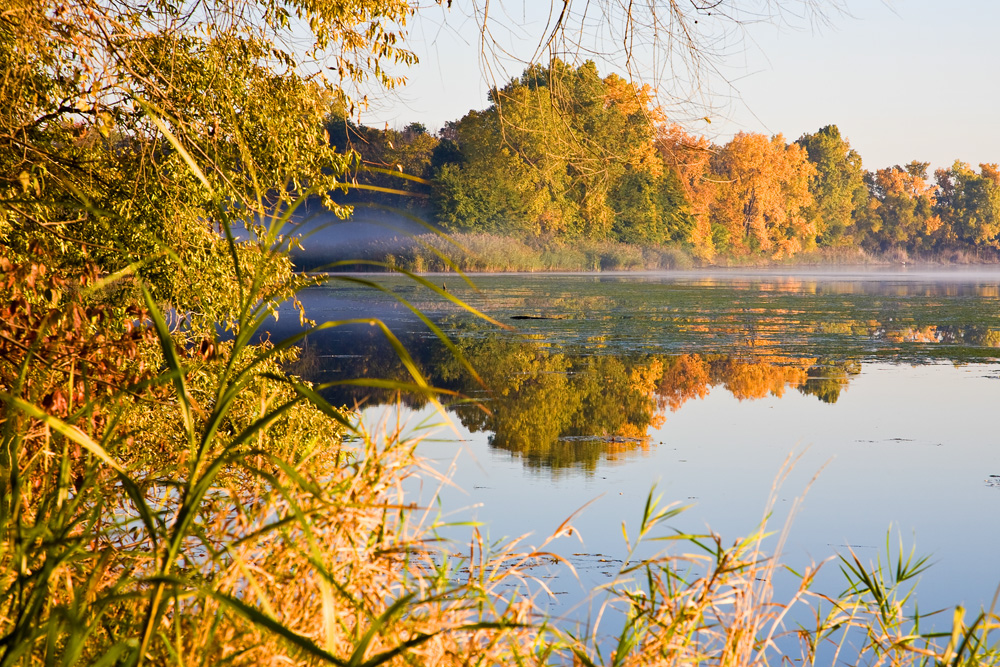By Yang Zhang
Humbug Marsh along the Detroit River is Michigan’s first Wetland of International Importance recognized under the Ramsar Convention.
The convention, adopted in Ramsar, Iran in 1971, is an international treaty for the conservation and sustainable use of wetlands and their resources. More than 300 people celebrated the recognition last month at the Carlson High School in Gibraltar, Mich.
“It is a huge honor to have this designation,” said Tracy Collin, a Great Lakes coastal wetland ecologist with the Michigan Department of Natural Resources and Environment. “We are truly excited about it.”
To get the designation, wetland conservationists must commit to protecting them through national land-use planning, policies, public education and international cooperation, according to the convention.
Humbug Marsh is now among 1,886 wetlands enjoying similar protection.
Located near the mouth of the Detroit River in the cities of Trenton and Gibraltar, the Great Lakes coastal wetland is a globally imperiled community type, Collin said.
The marsh serves as a vital habitat for 51 species of fish, 90 species of plants, 154 species of birds, seven species of reptiles and amphibians, and 37 species of dragonflies and damselflies, according to the Michigan Department of Natural Resources and Environment.
“Without it, a lot of those species of fish and wildlife wouldn’t have a place or a refuge on the river,” Collin said.
Wetlands also control floods, improve water quality and provide recreation, according to the U.S. Environmental Protection Agency.
But more than 97 percent of coastal wetlands in the Detroit River have been destroyed by human activities, according to the U.S. Fish and Wildlife Service.
Humans endanger wetlands directly and indirectly through road runoff, agriculture pollution and coastal development, Collin said.
Humbug Marsh once faced threats from human development.
“It is a wetland that was threatened with development, saved by the citizens who care about it and ends up being recognized internationally as a wetland that’s substantial to global biodiversity for sustaining and improving human life,” Collin said.
Humbug Marsh: a citizen victory for conservation

Observation deck at Humbug Marsh. Photo: Friends of the Detroit River
More than a decade ago, Made in Detroit, a real estate development company, purchased the marsh and proposed housing, marina, strip mall or golf course develoments, said John Hartig, refuge manager for the Detroit River International Wildlife Refuge, a national conservation program to protect the shorelines of the Detroit River and the western Lake Erie.
“So everything in Humbug would be lost,” he said.
More than 1,000 people concerned about the marsh opposed the proposal at a public hearing in September of 1998. The Friends of the Detroit River, a grassroots organization dedicated to protecting and improving the river, led the opposition.
“It was a remarkable turnout,” said David Howell, chairman of the organization. “To me, it is a very stunning demonstration of the way people thought in the community near Humbug Marsh and how important it was to protect this place.”
The Michigan Department of Environmental Quality and the U.S. Army Corps of Engineers denied the proposal and the U.S. Fish and Wildlife Service bought the marsh in 2004. It became part of the Detroit River International Wildlife Refuge, North America’s only international wildlife refuge.
Hartig regards it as “a citizen victory for conservation and for quality of life.”
“It shows how grassroots citizens and corporations can work together to protect wetlands, and it serves as a model for other places in Michigan,” he said.
Education is vital
A big part of the Ramsar Convention is teaching young people about wetlands. But many young people at the ceremony didn’t know the existence or the importance of Humbug Marsh, Collin said.
“(That’s why) we chose to do it at a high school,” she said. “It was a really important way to celebrate the designation just because we want to bring in what Ramsar is all about.”

Educational shelter at Humbug Marsh. Photo: Friends of the Detroit River
To promote environmental education, the U.S. Fish and Wildlife Service with other partners created an “education triangle” in Humbug Marsh in 2008. It includes an environmental education shelter, trails, and a stream.
There are also two wildlife observation decks and stations for students and visitors to learn about wetlands and other key habitats, Hartig said.
“Schools use it as a living laboratory for students,” he said. “…It is an unique opportunity for kids to reconnect with nature.”
Both Hartig and Howell grew up in the Detroit area and are frequent visitors to Humbug Marsh.
“I have walked that property many times,” Howell said. “(It is) one of my favorite places to go. I kayak through that area all the time (in summer).”
They also witnessed the environmental improvement in the Detroit River.
Many people have a perception of Detroit as a rustbelt city and the Detroit River as nothing but a polluted river and a rustbelt, Hartig said.
“That was true several decades ago, but is no longer true today,” he said.
Over the past 35 years the Detroit River has improved tremendously, Howell said.
“The river gets better,” he said. “More people are using it. More shorelines are protected.”
Humbug Marsh helps change the perception of Detroit and the Detroit River, Hartig said.
“It is the last mile of natural shoreline on the U.S. mainland of the Detroit River,” he said. “It would be so wonderful to be able to get everyone to use it, and benefit from it and help us to develop the next generation of conservationist.”

